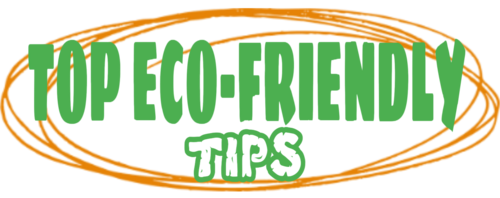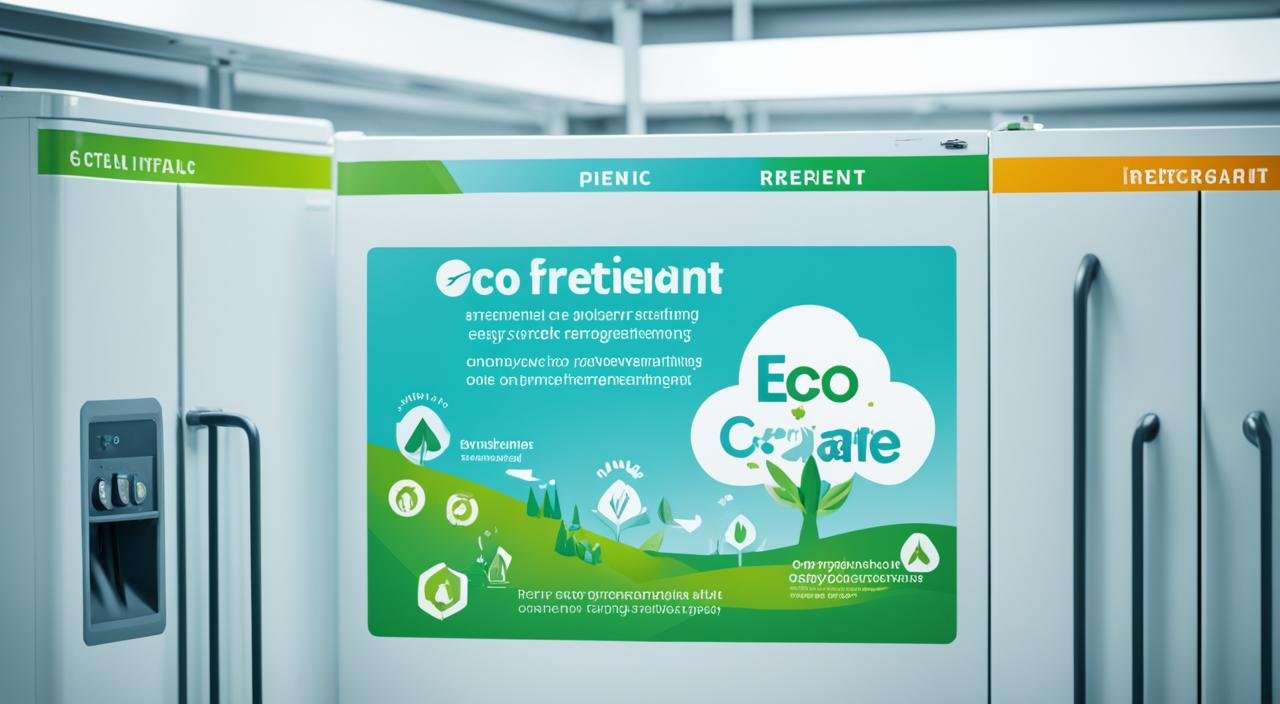Sustainable yarn is becoming increasingly popular as consumers seek environmentally friendly and socially conscious alternatives to traditional textile materials. With a growing concern for the planet and a desire to make more eco-friendly choices, many individuals are turning to sustainable yarn options for their knitting and crafting projects.
But what exactly makes yarn eco-friendly? Are there sustainable yarn options available? In this article, we will explore the concept of eco-friendly yarn, discuss the different types of sustainable yarn available, and highlight some of the benefits of using environmentally friendly yarn in your projects. We will also provide tips on how to incorporate sustainable yarn into your crafting endeavors and introduce you to some notable sustainable yarn brands.
If you’re wondering if you can combine your love for knitting or crocheting with your commitment to sustainability, keep reading to discover the world of eco-friendly yarn options!
Key Takeaways:
- Sustainable yarn is made from fibers produced and processed to minimize negative environmental and social impacts.
- Types of sustainable yarn options include bamboo, organic cotton, recycled yarn, hemp, linen, wool, alpaca, cork, Ahimsa silk, and Tencel.
- Benefits of using eco-friendly yarn include reducing carbon footprints, supporting sustainable fashion, using natural dyes, and promoting high-quality, long-lasting garments.
- Tips for using sustainable yarn in projects include choosing suitable fiber, supporting sustainable brands, using natural dyes, prioritizing quality, and considering the entire supply chain.
- Notable sustainable yarn brands include Darn Good Yarn, Natural Recycled Yarn, GANXXET, Spindle and Skein, We Are Knitters, Max + Herb, and Selfmade.
Types of Sustainable Yarn Options
When it comes to sustainable yarn, there is a wide range of options available that align with eco-friendly principles. Each type of sustainable yarn is made from different materials, providing unique benefits and considerations. Here are some of the most popular types of sustainable yarn:
- Bamboo Yarn: Made from renewable and biodegradable bamboo fibers, bamboo yarn requires less energy and water to produce.
- Organic Cotton Yarn: Produced from cotton grown without synthetic fertilizers or pesticides, organic cotton yarn reduces the environmental impact.
- Recycled Yarn: Crafted from reclaimed fibers, recycled yarn helps reduce waste and is often dyed with natural dyes.
- Hemp Yarn: Made from sustainable hemp plant fibers, hemp yarn requires minimal water and no pesticides.
- Linen Yarn: Derived from flax plant fibers, linen yarn has low water consumption and is a durable and versatile option.
- Wool Yarn: Wool yarn can be sustainable if produced using ethical practices, ensuring the welfare of sheep and responsible sourcing.
- Alpaca Yarn: Derived from the fleece of alpacas, alpaca yarn has a low environmental impact and is prized for its softness and warmth.
- Cork Yarn: Harvested without harming the trees, cork yarn is renewable, biodegradable, and provides a unique texture.
- Ahimsa Silk Yarn: Produced without harming silkworms, Ahimsa silk yarn offers a cruelty-free alternative for luxurious projects.
- Tencel Yarn: Made from wood pulp, Tencel yarn boasts a closed-loop production system and is biodegradable, making it a sustainable choice.
Each type of sustainable yarn has its own characteristics, making them suitable for various projects. By exploring these options, crafters can choose yarn that aligns with their eco-friendly goals and contributes to a more sustainable textile industry.
Image:
Benefits of Using Eco-Friendly Yarn
Choosing eco-friendly yarn for your projects comes with several benefits. By opting for materials with lower environmental impacts, you can actively reduce your carbon footprint and contribute to a more sustainable fashion industry. Let’s explore the advantages of incorporating eco-friendly yarn into your knitting and crocheting endeavors.
- Reducing Carbon Footprint: By selecting yarn made from sustainable fibers, you can minimize the environmental impact associated with traditional textile production. These eco-friendly choices help mitigate greenhouse gas emissions, conserve water resources, and promote a healthier planet.
- Natural Dyes: Using natural dyes instead of synthetic ones is another eco-conscious choice. Natural dyes are derived from plants, vegetables, or insects and do not introduce harmful chemicals into the environment. They provide a safer and more sustainable alternative that adds unique and vibrant colors to your projects.
- High-Quality Fiber: Investing in high-quality fiber ensures the longevity and durability of your garments. Eco-friendly yarn often consists of high-quality materials that withstand wear and tear, allowing you to create cherished items that will last for years to come.
- Repurpose and Upcycle: Eco-friendly yarn supports the practice of repurposing and upcycling. You can transform old clothing or fabric scraps into beautiful new creations, reducing waste and embracing a more sustainable approach to crafting.
- Consider Supply Chain: When using eco-friendly yarn, it’s essential to consider the entire supply chain. Look for brands that prioritize fair trade practices, ethical sourcing of materials, and sustainable production methods. By doing so, you can ensure that your crafting choices are aligned with your values.
- Spreading Awareness: One of the most impactful ways to promote sustainable practices is to spread awareness. Encourage others to make eco-friendly choices by sharing your knowledge and showcasing the benefits of using sustainable yarn.
By incorporating eco-friendly yarn into your projects, you can make a tangible difference in reducing your environmental impact while creating beautiful and sustainable pieces. Let’s continue exploring how you can effectively utilize sustainable yarn in your crafting endeavors.
Tips for Using Sustainable Yarn in Projects
When working with sustainable yarn in your projects, there are several tips to keep in mind to ensure a positive impact on the environment and support sustainable practices. Here are some key considerations:
- Choose Suitable Fiber: Select the right type of sustainable fiber that fits your specific project requirements. Options include organic cotton, bamboo, hemp, linen, and more.
- Prioritize Quality: Invest in higher-quality sustainable yarns that are durable and long-lasting, reducing the need for frequent replacements.
- Research Sustainable Brands: Look for yarns from reputable sustainable brands that prioritize eco-friendly manufacturing processes and fair trade practices. Certifications like GOTS (Global Organic Textile Standard) or Fair Trade Certified can help identify reliable brands.
- Use Natural Dyes: Instead of synthetic dyes, opt for natural dyes made from plants, vegetables, or insects. Natural dyes are more eco-friendly and biodegradable.
- Repurpose and Upcycle: Get creative by repurposing old clothing or fabric scraps to create new and sustainable projects. Upcycling reduces waste and promotes a circular economy.
- Consider the Supply Chain: Evaluate the entire supply chain of the yarn, from raw material sourcing to production and distribution. Choose yarns that prioritize ethical practices, fair wages, and environmentally conscious processes.
- Share Knowledge: Spread awareness about the benefits of using sustainable yarn in projects. Encourage others to make more informed and eco-friendly choices through sharing your knowledge and experiences.
By following these tips, you can contribute to a more sustainable and environmentally friendly approach to crafting with yarn.
| Tip | Description |
|---|---|
| Choose Suitable Fiber | Select the right type of sustainable fiber for your project. |
| Prioritize Quality | Invest in high-quality, durable yarns that last longer. |
| Research Sustainable Brands | Find yarns from reputable sustainable brands with eco-friendly and fair trade practices. |
| Use Natural Dyes | Opt for natural dyes made from plants, vegetables, or insects. |
| Repurpose and Upcycle | Create new projects by repurposing old clothing or fabric scraps. |
| Consider the Supply Chain | Evaluate the entire supply chain of the yarn, ensuring ethical and environmentally conscious practices. |
| Share Knowledge | Spread awareness about the benefits of sustainable yarn and encourage others to make eco-friendly choices. |
Introduction to Sustainable Yarn Brands
When it comes to sustainable yarn options, there are several brands that stand out for their commitment to eco-friendly practices and ethical sourcing. These brands offer a wide range of yarns made from sustainable materials, ensuring that you can create beautiful projects while minimizing your environmental impact. In this section, we will introduce you to some of these sustainable yarn brands:
Darn Good Yarn
- Unique yarns made from sustainable materials
- Supports fair trade and ethical practices
Natural Recycled Yarn
- Provides affordable and eco-friendly yarn by unraveling thrifted garments
- Offers a range of sustainable natural fibers
GANXXET
- Offers a wide range of sustainable fibers for knitting, crocheting, weaving, and macrame
- Emphasizes the use of organic and recycled cotton
Spindle and Skein
- Sources sustainable, ethically raised wool from British mills and local farmers
- Provides a variety of yarn styles and colors
We Are Knitters
- Offers a variety of sustainable fibers and project kits
- Emphasizes the value of handmade garments
Max + Herb
- Offers high-quality, fairly traded fibers sourced from diverse sheep breeds
- Community-oriented and committed to sustainability
Selfmade
- A UK-based shop with a wide range of sustainable yarn options
- Provides a variety of natural fibers and brands
These brands are just a few examples of the many sustainable yarn options available. Each offers a unique range of fibers, styles, and colors, allowing you to find the perfect yarn for your eco-friendly projects. Whether you are a knit or crochet enthusiast or love exploring other fiber crafts, these sustainable yarn brands have you covered.
Darn Good Yarn
Darn Good Yarn offers a wide selection of sustainable yarns, including natural and recycled options. Their catalog features various weights, styles, textures, and colors, catering to the diverse needs of crafters.
The yarns offered by Darn Good Yarn are ethically sourced from Nepal and India, supporting fair trade practices and artisan collectives. By purchasing their yarn, customers contribute to the livelihoods of skilled artisans and help create positive social impact in these communities.
Darn Good Yarn is committed to reducing waste and environmental impact. They prioritize the use of recycled fabric in their yarns, diverting materials that would otherwise end up in landfills. This sustainable approach aligns with their mission to create eco-friendly products and promote a circular economy.
Additionally, Darn Good Yarn partners with various organizations to give back to communities in need. Through charitable giving initiatives, they provide meals, medical care, and educational support to underprivileged individuals. By choosing Darn Good Yarn, crafters can make a positive difference in the world while enjoying their creative projects.
With their commitment to providing high-quality, hand-dyed, and woven yarns, Darn Good Yarn ensures a sustainable supply chain. Crafters can be confident that the yarns they work with are not only environmentally friendly but also produced with fair labor practices in mind.
Natural Recycled Yarn
Natural Recycled Yarn is a brand that specializes in offering a unique selection of sustainable and eco-friendly yarn. They prioritize the use of upcycled materials to create their yarn, promoting the concept of repurposing and reducing waste. Their commitment to sustainability extends to every aspect of their business, from sourcing to packaging.
The founder of Natural Recycled Yarn, Misti, began unraveling thrifted sweaters for her own projects, and soon realized the potential to provide these upcycled yarns to other crafters. By sourcing materials from local thrift shops, Natural Recycled Yarn contributes to the circular economy by giving new life to pre-loved garments.
Their collection includes a range of natural fibers, including sustainable cashmere, cotton, linen, Merino wool, and more. By utilizing secondhand sourcing, Natural Recycled Yarn ensures that these fibers remain in use rather than ending up in landfills. This secondhand approach not only reduces waste but also promotes the sustainability of the fashion industry.
Natural Recycled Yarn also prioritizes eco-friendly packaging, using recycled materials whenever possible. By minimizing their environmental footprint throughout the entire production and distribution process, they strive to be as sustainable as possible.
Benefits of Natural Recycled Yarn:
- Promotes the concept of upcycling and reducing waste
- Provides affordable prices for eco-conscious crafters
- Sources materials secondhand, reducing the demand for new resources
- Offers a variety of natural fibers, including sustainable cashmere, cotton, linen, and Merino wool
- Uses eco-friendly packaging materials to minimize environmental impact
With Natural Recycled Yarn, crafters can create beautiful and sustainable projects while supporting the principles of upcycling and circularity.
GANXXET
GANXXET offers a wide range of sustainable fibers, allowing crafters to choose materials that align with their eco-conscious values. From organic and recycled cotton to bamboo viscose and vegan options, GANXXET provides a variety of sustainable choices for every project. By prioritizing sustainable fibers, crafters can contribute to a more environmentally friendly textile industry.
One of the key features of GANXXET’s yarn collection is the use of organic and recycled cotton. Organic cotton is grown without the use of synthetic fertilizers or pesticides, reducing the environmental impact of its cultivation. Additionally, recycled cotton reduces waste by repurposing discarded textiles. By opting for these sustainable cotton options, crafters can create beautiful projects while minimizing their carbon footprint.
In addition to cotton, GANXXET also offers bamboo viscose yarn. Bamboo is a highly sustainable material, as it grows rapidly and requires minimal water and pesticides to thrive. Bamboo viscose yarns have a soft and silky texture, making them perfect for creating luxurious and sustainable garments.
For crafters who follow a vegan lifestyle, GANXXET provides a variety of vegan yarn options. These yarns are free from animal-derived materials and are ethically produced. Crafters can enjoy cruelty-free crafting without compromising on quality or style.
GANXXET’s commitment to sustainability is further exemplified by their use of OEKO-TEX certified dyes. This certification ensures that their dyes are free from harmful substances and are produced in an environmentally friendly manner. Crafters can confidently create with GANXXET yarns, knowing that the colors they choose are safe for both themselves and the environment.
GANXXET goes beyond traditional yarn options by offering unique materials such as cork yarn and Ahimsa silk yarn. Cork yarn is made from renewable cork oak bark, which can be harvested without harming the tree. Ahimsa silk yarn is produced without harming silkworms, making it a cruelty-free alternative to conventional silk. These innovative materials allow crafters to explore new textures and create unique, sustainable projects.
By choosing GANXXET’s range of sustainable fibers, crafters can create beautiful and eco-friendly projects that contribute to a more sustainable textile industry. Whether it’s organic and recycled cotton, bamboo viscose, vegan options, or unique materials like cork yarn and Ahimsa silk yarn, GANXXET offers a wide selection of sustainable yarns to inspire crafters to create consciously.
Spindle and Skein
Spindle and Skein is a brand that focuses on ethical wool yarn sourced from diverse sheep breeds. They prioritize responsible sourcing and handspun production methods to ensure the highest quality yarn. By working with British mills and local farmers, Spindle and Skein supports sustainable practices and reduces their carbon footprint.
Their yarn collection offers a wide variety of styles and colors, catering to different knitting or crocheting projects. From soft and delicate fibers to hearty and durable options, there is something for every creative endeavor.
Spindle and Skein places a strong emphasis on minimal packaging to reduce waste and minimize their impact on the environment. They believe in responsible packaging that protects the yarn while being mindful of sustainability.
In addition to their commitment to ethical sourcing and minimal packaging, Spindle and Skein also offers local deliveries using bicycles. This eco-friendly approach further reduces their carbon footprint and supports their dedication to responsible practices.
“Our mission is to provide knitters and crocheters with ethical wool yarn while minimizing our environmental impact. We believe that responsible sourcing, handspun production, minimal packaging, and local deliveries all contribute to a more sustainable future for the crafting community.”
Sustainable Practices at a Glance
| Ethical Wool Yarn | Diverse Sheep Breeds | Handspun Production |
|---|---|---|
| Sourced responsibly from British mills and local farmers. | Works with diverse sheep breeds for a range of unique yarns. | Handspun to ensure quality and authenticity. |
Benefits of Spindle and Skein Yarn
- Supports ethical practices in the wool industry.
- Promotes biodiversity by working with diverse sheep breeds.
- Offers unique and high-quality handspun yarn.
- Reduces environmental impact through responsible sourcing.
- Minimizes packaging waste and uses eco-friendly materials.
- Provides local deliveries with bicycles, supporting sustainability.
With Spindle and Skein ethical wool yarn, crafters can create beautiful, sustainable projects while supporting responsible practices. By choosing this brand, you can confidently knit or crochet with yarn that aligns with your values and helps protect the environment.
We Are Knitters
We Are Knitters is a one-stop-shop for sustainable DIY projects. They offer a wide range of project kits, sustainable fibers, tools, and patterns to cater to all knitting enthusiasts. With a strong commitment to ethical sourcing and community-oriented values, We Are Knitters ensures that their materials are responsibly produced, creating opportunities for communities around the world.
Their project kits include everything you need to complete a knitting or crochet project, including yarn, needles, and instructions. These kits not only make it convenient for beginners to get started, but they also help reduce waste by providing just the right amount of materials needed for each project.
What sets We Are Knitters apart is their emphasis on sustainability and the value of handmade garments. They carefully select sustainable fibers, such as organic cotton and recycled materials, to minimize their environmental impact. By using these materials, crafters can create beautiful, high-quality items while contributing to a more sustainable fashion industry.
We Are Knitters also fosters a sense of community among crafters through their video tutorials and knitting parties. Their online video tutorials provide step-by-step instructions for various knitting techniques, making it easy for knitters of all skill levels to learn and improve their craft. Knitting parties, both online and in-person, allow crafters to connect and share their love for knitting in a fun and social environment.
Overall, We Are Knitters is a brand that not only offers quality products but also promotes sustainable practices and community engagement. Whether you’re a beginner or an experienced knitter, We Are Knitters has something for you.
Max + Herb
Max + Herb is a community-oriented company that is committed to providing sustainable crochet yarn options. They prioritize ethical and sustainable practices in their sourcing and production processes, ensuring that their yarn is both environmentally friendly and socially responsible.
One of the key aspects of Max + Herb’s appeal is their diverse range of fiber options. They offer a variety of high-quality, fairly traded fibers that cater to different crochet projects. Whether you’re looking for soft and luxurious yarn or durable and sturdy options, Max + Herb has a selection to meet your needs.
The brand name itself, Max + Herb, is inspired by two endangered sheep breeds. This choice reflects their dedication to the preservation of endangered animal species and the promotion of biodiversity. By purchasing Max + Herb’s yarn, you are not only supporting sustainable crochet, but also contributing to the conservation of precious sheep breeds.
At Max + Herb, they believe in the power of community. Their crochet yarn offerings are designed to bring people together, fostering a sense of connection and belonging. The company actively engages with their customers, providing support, inspiration, and resources to help them create beautiful and sustainable crochet projects.
Conclusion
Choosing eco-friendly yarn options is crucial for promoting sustainability and minimizing the environmental impact of the fashion industry. Sustainable yarns are made from renewable and biodegradable materials, ensuring a reduced carbon footprint. These yarns are produced using eco-friendly methods, minimizing the use of harmful chemicals and conserving water resources. Additionally, sustainable yarns are sourced ethically, considering factors such as animal welfare and social welfare.
When consumers prioritize eco-friendly yarn, they contribute to a more sustainable future by making informed choices that align with their values. By considering factors such as water consumption, carbon footprint, overgrazing, and durability, consumers can select yarns that have a minimal environmental impact. Furthermore, by opting for yarns made from recycled materials, consumers actively participate in the recycling process, reducing waste and promoting circularity in the fashion industry.
In order to drive a positive change, it is essential to spread awareness and knowledge about eco-friendly yarn options. By educating others about the benefits of sustainability, we can inspire more people to make conscious consumer choices. Together, we have the power to create a more sustainable fashion industry that prioritizes ethical practices, reduces environmental impact, and respects the well-being of both people and the planet.
FAQ
Is sustainable yarn eco-friendly?
Yes, sustainable yarn is made from fibers produced and processed to minimize negative environmental and social impacts. It is often made from renewable and biodegradable materials and involves using eco-friendly methods and ensuring fair labor practices.
What are some types of sustainable yarn options?
Bamboo yarn, organic cotton yarn, recycled yarn, hemp yarn, linen yarn, wool yarn, alpaca yarn, cork yarn, Ahimsa silk yarn, and Tencel yarn are all examples of sustainable yarn options.
What are the benefits of using eco-friendly yarn?
Using eco-friendly yarn helps reduce carbon footprints, supports a more sustainable fashion industry, promotes the use of natural dyes, ensures longer-lasting garments, reduces waste through repurposing and upcycling, and encourages sustainable practices throughout the supply chain.
What tips can you provide for using sustainable yarn in projects?
When using sustainable yarn, it’s important to choose the suitable fiber for your specific needs, research and choose yarn from sustainable brands, use natural dyes instead of synthetic ones, prioritize quality over quantity, repurpose and upcycle old clothing or fabric scraps, evaluate the entire supply chain for sustainable practices, and share knowledge about the benefits of sustainable yarn.
Can you recommend any sustainable yarn brands?
Some sustainable yarn brands include Darn Good Yarn, Natural Recycled Yarn, GANXXET, Spindle and Skein, We Are Knitters, Max + Herb, and Selfmade.
Tell me more about Darn Good Yarn.
Darn Good Yarn offers a wide selection of sustainable yarns, including natural and recycled options. The yarns are ethically sourced from Nepal and India, supporting fair trade and artisan collectives. Darn Good Yarn also prioritizes the use of recycled fabric and partners with organizations to provide support to communities in need.
What can you tell me about Natural Recycled Yarn?
Natural Recycled Yarn specializes in 100% recycled natural fiber yarn sourced from local thrift shops. Their materials include sustainable cashmere, cotton, linen, and Merino wool. All materials are sourced secondhand, reducing waste and promoting sustainability.
What does GANXXET offer in terms of sustainable yarn?
GANXXET offers a range of sustainable fibers, including organic and recycled cotton, bamboo viscose, and vegan options. Their yarns are OEKO-TEX certified, ensuring safe and eco-friendly production. They also offer unique materials like cork yarn and Ahimsa silk yarn.
What makes Spindle and Skein stand out as a sustainable yarn brand?
Spindle and Skein focuses on ethical wool yarn sourced from diverse sheep breeds. Their wool is handspun and responsibly sourced from British mills and local farmers. They prioritize minimal packaging and sustainable shipping practices.
Can you provide more information about We Are Knitters?
We Are Knitters is a one-stop-shop for sustainable DIY projects. They offer project kits, sustainable fibers, tools, and patterns. Their materials are sourced in a way that creates opportunities for communities around the world, and they emphasize the value of handmade garments.
Tell me about Max + Herb and their sustainable crochet yarn.
Max + Herb is a community-oriented company that offers sustainable crochet yarn. They source high-quality, fairly traded fibers from a range of artisans. Their diverse fiber options reflect their commitment to the environment and animal welfare.
Why should I choose eco-friendly yarn options?
Choosing eco-friendly yarn options supports sustainability, reduces negative environmental impacts, promotes ethical practices, and allows individuals to make positive contributions to the fashion industry.





